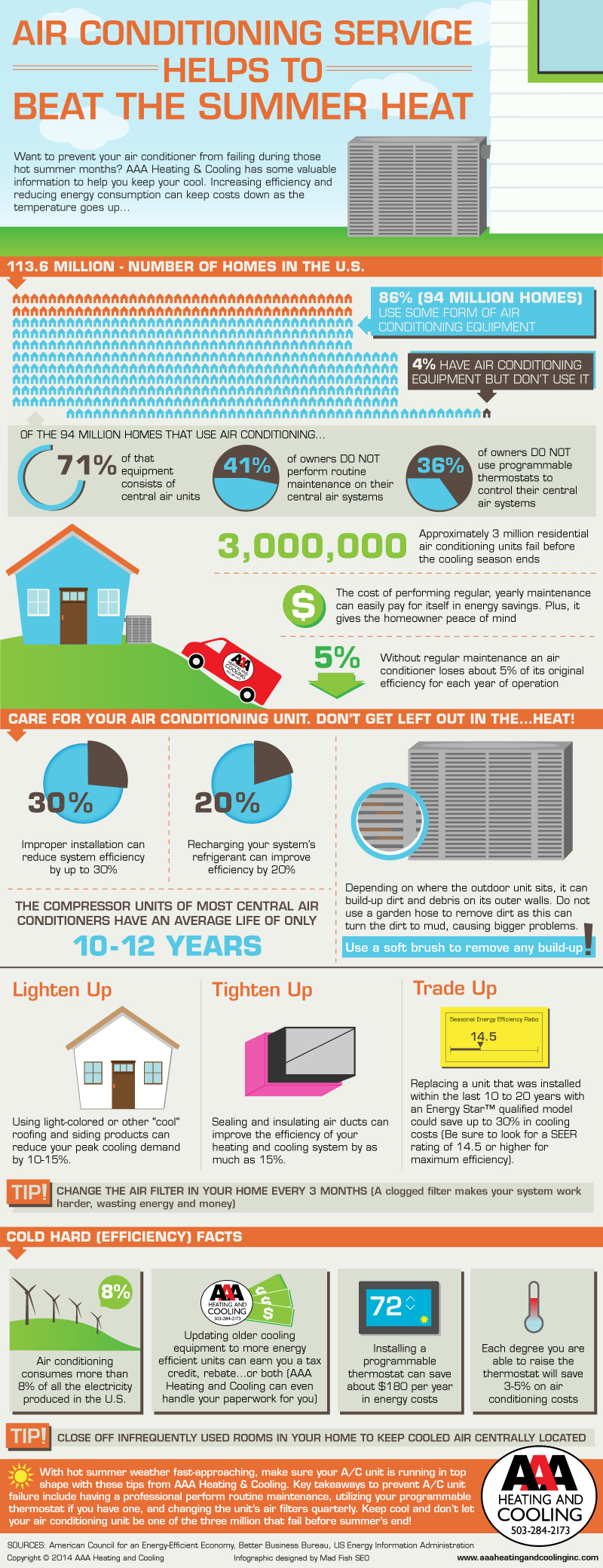Heat Pump Vs Furnace - Which Is The Better Home Heating Option For Your Home?
Heat Pump Vs Furnace - Which Is The Better Home Heating Option For Your Home?
Blog Article
Authored By-Huff Mosegaard
Numerous property owners know with furnaces, which warm homes with oil or gas and press hot air via ductwork. They are reasonably low-cost and can offer dependable home heating also during a wintertime power failure.
Nonetheless, they make use of fossil fuels and produce carbon monoxide and other air pollution. They also aren't as energy-efficient as a high-efficiency heatpump.
Expense
Usually, heatpump are a lot more inexpensive to operate than heating systems. They generally use electricity and refrigerant to essence warmth from outside air, and then transfer it right into your home. You can take advantage of cheaper electricity rates throughout off-peak hours to further reduce your home heating costs.
Unlike just click the up coming article , gas or wood-burning furnaces use combustion to produce warm, producing flue gases into the environment that can be harmful to your wellness. These heating systems are additionally much less energy-efficient than heatpump, and their higher operating expense can accumulate over time.
Heating systems are a lot more complicated than heatpump and need routine maintenance to guarantee the appropriate feature of all parts. Despite this, they often tend to last longer than heat pumps with a normal lifespan of 20 years or even more. Nevertheless, you'll require to consider the price of gas, fuel oil or timber and the added devices required for setup and procedure such as air ducts and ventilation systems.
Power Performance
Heat pumps have a greater power performance score than furnaces. These systems utilize electricity to scavenge heat from the air, also in freezing temperature levels. They can likewise eliminate excess warm from the home throughout warmer months and recycle it to cool the system. copyright experts can assist you establish the very best design for your home on environment and resource energy costs.
Heaters burn fuel oil, gas, natural gas or other types of nonrenewable fuel source to warm the air in the home. This air is after that distributed through ductwork using a huge follower. Furnaces produce greenhouse gases and require regular upkeep and equipment upgrades to ensure risk-free operation.
The biggest benefit of a heater is that it can be operated even in severe wintertime conditions since it does not depend on outdoor temperatures to heat the air. Furnaces additionally have a longer lifespan than heatpump and typically last 15 years. They can additionally be coupled with dual gas options, which pick the most effective heating alternative based upon the weather condition.
Climate
Heatpump work well in moderate climates and use less source power than heating systems. Nevertheless, if your region is remarkably cold, you may require to buy a common gas furnace instead.
Furnaces provide cozy, comfortable warmth and generally use rapid heating to increase interior temperature levels. These systems can be used with a range of fuel types, consisting of gas, gas, oil or electrical power.
They take in a lot more energy than heat pumps-- as much as 3x as much-- and need ductwork that's costly to install or retrofit. They're likewise more costly to keep, as they can create air high quality concerns and generate greenhouse gas emissions.
If you're committed to lowering your carbon impact, a heat pump is a good option for your home. They have less greenhouse gas emissions than heating systems, specifically if you select a power CELEBRITY ® heat pump. Your regional Service provider expert can describe the distinctions in between these two furnace and aid you make the most effective decision for your distinct needs.
Individual Preferences
Heaters can be very energy reliable when powered by natural gas, propane or oil, however they aren't as energy efficient as heatpump in frigid environments. click to read can also be a lot more pricey to install, requiring gas lines and air flow systems.
Nevertheless, furnaces have a tendency to call for less maintenance, which can cause lower recurring costs. They produce less greenhouse gases and are much more reputable than heat pumps throughout severe weather condition.
Electric heat pumps are extra functional in creating indoor comfort because they can additionally work as ac system during warmer months. They can be easier to keep, calling for only routine air filter adjustments and periodic vacuuming.
If you favor the convenience of a single system that does it all, consider a crossbreed home heating solution that sets a heater with an electrical heat pump. These systems can automatically switch over in between the two home heating choices based upon your home's demands and temperature level conditions, taking full advantage of performance and savings.